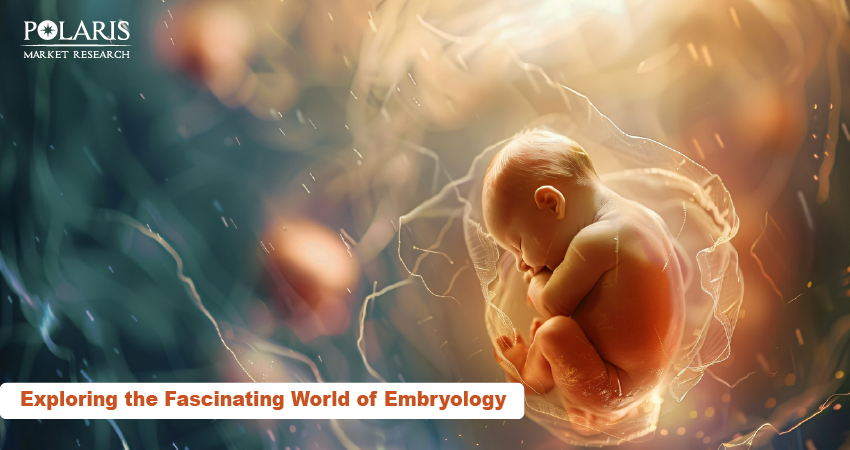Exploring the Fascinating World of Embryology

World Embryologist Day, also known as World IVF Day, is celebrated annually on July 25 to honor the individuals who work diligently to advance our understanding of the early stages of human development. Embryology has become one of the most captivating fields of science, garnering attention and interest from both the general public and the scientific community. Recent breakthroughs in assisted reproductive technologies, genetic research, and regenerative medicine have further added to the momentum.
In this blog post, we take you to the fascinating realm of embryology. We explain the fundamentals of embryology and shed light on common assisted reproductive technologies, such as IVF. Additionally, we highlight the significance of World Embryologist Day in acknowledging the vital contributions of embryologists to both reproductive health and scientific advancements.
Embryology: Introduction
Embryology is the branch of medicine and biology that focuses on the study of embryos and their development. It covers the developmental process of a baby from a single-cell embryo. Embryology typically refers to the prenatal development of a foetus. It is a key research area to understand mutation impact and genetic disease progression. A key aspect of embryology is research on stem cells.
IVF: Overview
IVF means in vitro fertilization. It is a type of assistive reproductive technology that acts as a treatment for infertility. Infertility is the inability of a couple to conceive after at least 12 months of trying. In some cases, IVF can also be used as a means to prevent passing on genetic disorders to the baby. Other situations when people opt for IVF include low sperm count, uterine fibroids, polycystic ovarian syndrome, and same-sex couples.
Steps Involved in IVF Treatment
Below is a breakdown of the various steps involved in the IVF treatment process:
Birth Control Pills or Estrogen
Before initiating IVG treatment, estrogen or birth control pills may be prescribed. The pills are used to halt the development of ovarian cysts. Additionally, they enable the control of menstrual cycle timing. Using birth control pills, the healthcare provider can increase the number of mature eggs during the retrieval procedure.
Ovarian Stimulation
A healthy person of reproductive age experiences the monthly maturation of eggs. Usually, only one egg matures enough to ovulate. The other eggs in the group that are immature get disintegrated. During the IVF cycle, hormone medications are administered to promote the simultaneous and complete maturation of the entire group of eggs. So, unlike the natural cycle that results in just a single egg, medication can cause multiple eggs to be released. The dosage and type of medication prescribed will be based on individual factors, such as age, medical history, and AHM level.
Other steps involved in ovarian stimulation include monitoring and a trigger shot. Monitoring involves examining the response of the ovaries to medications by measuring blood hormone levels and using ultrasounds. The trigger shot is used to induce final egg maturation and trigger ovulation.
Egg Retrieval
The egg retrieval process involves using an ultrasound that guides a thin needle into each of the ovaries. A suction device is connected to the needle. The suction device pulls the eggs out of each follicle. After withdrawing, the eggs are transferred to a dish that contains a special solution. The dish is then placed into a controlled environment.
Fertilization
After retrieval, the embryologist will attempt to fertilize all mature eggs with the use of ICSI. This involves injection sperm into each mature egg. ICSI can’t be done on immature eggs. As such, the immature eggs are passed on into a dish with nutrients and sperm. Immature eggs typically don’t finish the maturation process in the dish. In case the maturing of eggs doesn’t take place, the fertilization attempt is carried out by the sperm in the dish.
Embryo Development
Once fertilization is complete, the development of the embryos will undergo carefully monitoring over the next few days. There are several challenges that the embryo needs to overcome before becoming suitable for uterine transfer. On average, only half of the fertilized embryos are able to make it to the blastocyst stage. The blastocyst stage is most suitable for egg transfer to the uterus. All suitable embryos will then be frozen to enable their use in future embryo transfers.
Embryo Transfer
Fresh embryo transfer and frozen embryo transfer are the two main kinds of embryo transfers. In a fresh embryo transfer, the fertilized egg is transferred into the uterus within the same cycle it was retrieved from the ovaries. This is typically within 3 to 5 days after egg retrieval. For frozen embryo transfer, frozen embryos from a past IVF cycle are transferred into the uterus.
Celebrating World Embryologist Day
World Embryologist Day is an annual celebration that takes place on July 25. It commemorates the significant scientific progress made in the field of reproductive endocrinology and infertility. The day marks the birth of the first test tube baby in 1978. It honors Dr Robert Geoffery Edwards and his colleagues for their significant and successful efforts.
Infertility is a common condition experienced by both women and men. Estimates suggest that one in six individuals in the reproductive age group experience infertility. An embryologist is a scientist specializing in the study and care of embryos, especially in the context of infertility treatments like IVF. They play a crucial role in the conception process by handling eggs, sperm, and developing embryos. Embryologists ensure the best possible outcome for individuals or couples experiencing infertility.
To Conclude
From facilitating IVF procedures to enabling groundbreaking research on stem cells and gene cloning, embryologists make significant contributions to our understanding of life’s earliest stages and continue to push the boundaries of science. As we celebrate World Embryologist Day, it’s importance to recognize the dedication and expertise that drive embryologists to uncover the mysteries associated with the development of life.

